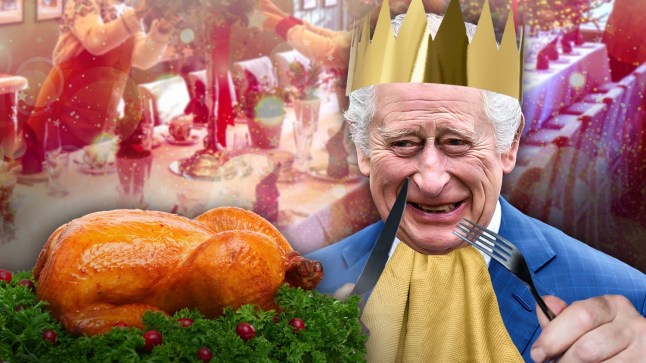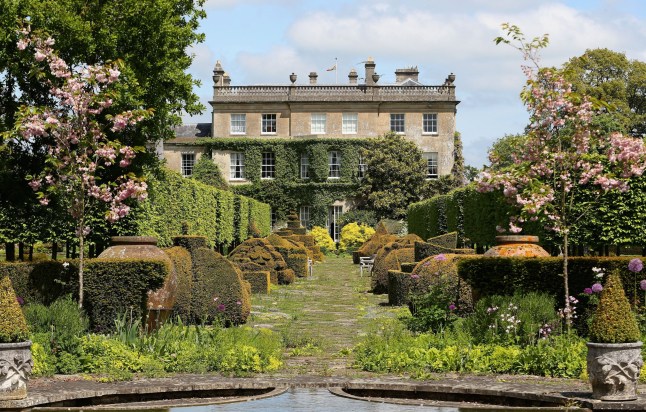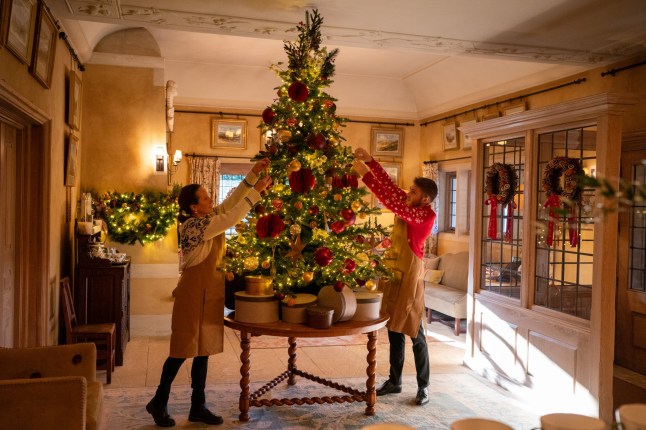
At the height of the craze for all things vegan, King Charles III’s beloved Highgrove house rolled out pan-fried roots for Christmas lunch.
The earthy dish was in keeping with the monarch’s green lifestyle, which sees him going two days a week without meat and one without dairy.
However his dalliance with an alternative Christmas dinner for paying guests at his and Queen Camilla’s private house and gardens has since been replaced by more traditional fare.
The move is in keeping with the cooling of interest in veganism on the British high street, with one example being Pret closing its last three vegetarian branches in February.
Greggs followed three months later by axing its vegan steak bake.
Highgrove was part of the original boom in animal-free eating two years ago when it offered diners a turkey-free, vegan-centric menu.
Braised short rib of beef was one of only two meat options on the list for festive lunch at the royal residence in Tetbury, Gloucestershire.

Roast sea bream fillet and the vegan pan-fried roots and chestnut cake were the other options for yuletide mains. Starters included vegan celeriac and truffle soup, country-style venison terrine and house-cured salmon with gin and caper cream, cucumber and croutons.
The creative offerings were in keeping with the king’s green credentials which include founding organic food brand Duchy Originals, which now partners with Waitrose.
The King’s Foundation has previously spoken of ‘sustainable dishes characteristic of the Cotswolds’ and ‘the rich larder offered by Highgrove Gardens and many brilliant local farmers and producers’ in relation to the festive menu.

King Charles. 76, previously spoke about the virtues of a plant-centric diet in reducing his carbon footprint.
In 2021, he told the BBC: ‘For years I haven’t eaten meat and fish on two days a week and I don’t eat dairy products on one day a week.
‘Now I mean that’s one way to do it — if more did that you would reduce a lot of the pressure on the environment and everything else.
‘Because you see the thing about meat is very important — where does it come from, how is it grown?
‘So if it’s grass-based and from the right breeds, you know if it is better quality but eaten less often — that approach to farming is less damaging than the industrialised approach, and causing huge pressures and damage.’

By contrast, heading the mains this year was the ballotine of turkey wrapped in smoked bacon with sage stuffing, roasted seasonal vegetables and braised red cabbage.
The other options for the sold-out Christmas lunch, which ran between November 20 and December 21, were sea bream and a sage, goats cheese and butternut squash tartlet.
The King and Queen are due to spend Christmas Day with family at Sandringham, their private estate in Norfolk, continuing a royal tradition established by the late Queen Elizabeth II.
An Ipsos survey by The Vegan Society found that 3% of UK residents — around 2 million people — identify as vegan or following a plant-based diet.
More Trending
Maisie Stedman, a spokeswoman from the vegan charity, said: ‘Veganism is far from being a trend or a fad diet. It is a lifestyle grounded in ethical values, and research underscores its positive environmental impact.
‘A vegan diet is the most sustainable of all diets and can reduce an individual’s food-related emissions by 75%
‘Despite recent challenges in specific product categories due to market shifts and the cost-of-living crisis, the plant-based sector remains resilient and continues to grow.’
Do you have a story you would like to share? Contact josh.layton@metro.co.uk
MORE: Prince Charles’s turkey-free Christmas menu has chestnut cake for vegans
MORE: Is King Charles III vegetarian or vegan amid coronation quiche announcement?
MORE: Charles puts turkey back on Christmas menu with vegan dishes disappearing












